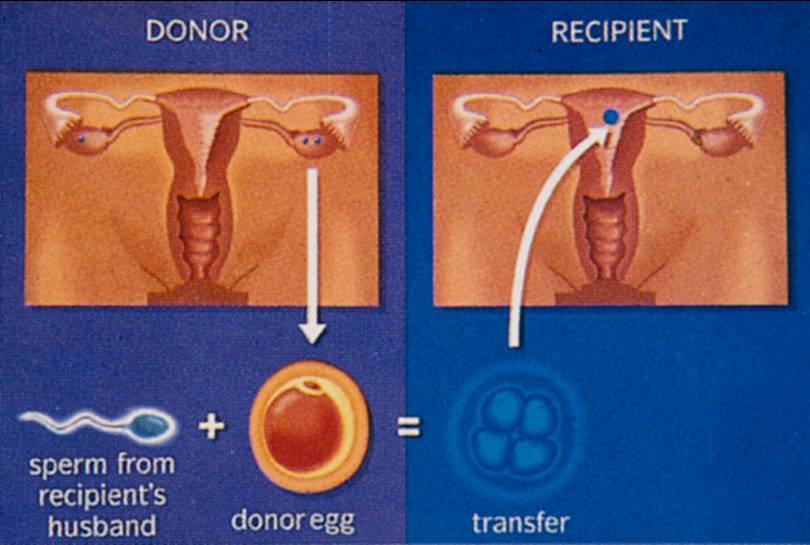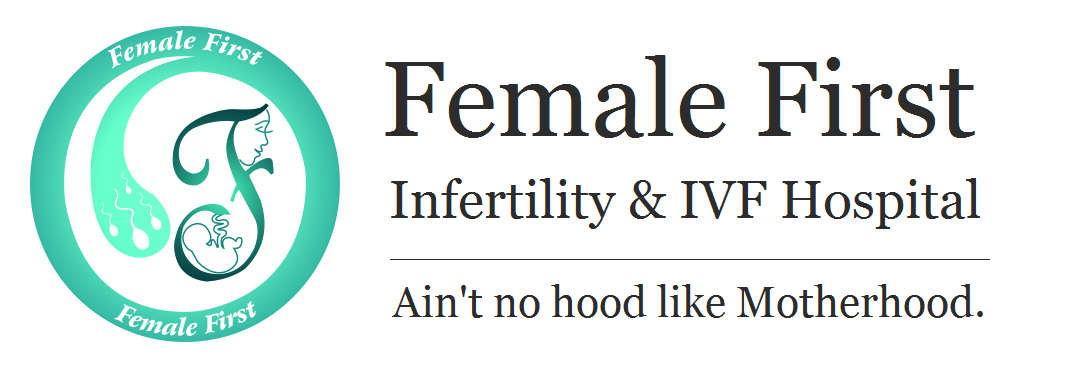Sperm Donation in Surat

Donner egg IVF is a fertility treatment in which the egg from the donor is mixed with the sperm donation from the biological father in the laboratory. If embryos are produced they are transferred to the recipient’s uterus. If this results in a pregnancy , the baby thus born will have genetic linkage to the donor of eggs.
Indication
A need for egg donation may arise for a number of reasons. Infertile couple may resort to acquiring eggs through egg donation when the female partner may not have eggs or poor quality eggs because of advanced reproductive age or other reasons.
Compromised Egg Quantity / Quality:
- Premature ovarian failure (POF), defined as woman less than 40 years old with persistent amenoirlenea & raised genadotropins. it affect 1% of female population. Majority are idiopathic, but about 20% are suspected to be autoimmune in nature.
- Chemotherapy & Radiation treatment for cancer.
- Compromise or Removal of the ovaries for treatment of malignancies or for non-cancerous conditions like infection, torsion or over aggressive removal of dermoids or endometrioma.
- Poor or compromised ovarian reserve because of advanced reproductive age by D 2/3 S.FSH (> 15 MIU/ml), estradiol (>45 pg/ml) or S.inhibin B.
- Repeated IVF failures because of poor fertilization rates or poor oocyte quality.
- Recurrent pregnancy loss.
- Rarely ovaries inaccessible to either trans vaginal or laparoscopic route.
- Physiological menopause.
- Congenital absence of eggs.
- Turner Syndrome (45 X o).
- Gonadal dysgenesis.
- Inheritable diseases.
- Linked or autosomal traits, however preimplantation genetic diagnosis may be useful in these cases.
Procedure:
- Egg donor screening
- Recipient screening
- Endometrial stimulation & synchronization
Egg donor screening – It is preferable that oocyte donors be under 30 years of age as youngers donors appear to have higher pregnancy rates.The recruited suitable egg donor is required to undergo a through medical examination including a pelvic examination.
- Complete medical history
- Screening for infections diseases (HIV, H B.s Ag, VDRL, Chlamydia). Hormone levels
- Trans vaginal ultra sound of pelvic to examine uterus ovaries & other pelvic organs.
Oocyte donors need to be provided full & comprehensive informed consent including the risks involved & legal aspects.
Recipient Screening
- Age
- Complete medical history & physical examination
- Complete blood count
- Blood Rh type
- Liver & Kidney function tests
- S.TSH Rubella & hepatitis Screen
- HIV, HBs Ag, VDRL
- Pap smear
- Transvaginal ultra sound
- ECG, X-Ray, chest mammogram, GTT, lipid profile as per medical history uterine cavity evaluation
Procedure synchronization
Step-1:
Birth control pills are administered during the first few weeks of the egg donation process to synchronize the donors cycle with the recipients Downregulaiton of donor ovaries by GnRH analogues for a period of one to three weeks followed by ovulation indication from D2/3 of periods by Hmg/FSH injections for a total of 9-11 days. Donor cycle is monitored by repeated ultrasound examination. Once the follicles are mature hcG is Given & egg retrieval done after 34-36 hours. It is done under TV ultrasound a minimally invasive procedure guidance under light general anesthesia. After an hour or divot, the donor is released & can resume regular activities. The eggs are fertilized in vitro with recipients husbands semen.
The recipient receives GnRH agonist for down regulation similar to donor, followed by oral oestrogen from D2 or 3 of their cycle. She is maintained on estrogen an tile the day of donors oocytes retrieval (approximally 12-14 days) when progesterone is added. Embryo transfer is done 2-4 days after progesterone one initiation. Oestrogen & progestions are continued for further 15 days after embryo transfer when if pregnancy is confirmed the same are continued till 12-14 weeks of pregnancy.
Sucess Rate
Egg donor cycle have a success rate of upwards of 50% better than standard IVF cycle, may be because the detrimental effect of supraphysiological concentration of oestrogen attained after controlled ovarian hyper stimulation in standard IVF cycle .
Become an Egg Donor
Normally a woman produces one mature egg each month & loses several immature eggs. Through the use of medication several follicles can be induced to develop mature eggs for retrieval. The process of IVF & egg donation requires that the donor takes a series of injectable medications which induce the growth of multiple ovarian follicles. These follicles which contain eggs (oocytes) are removed vaginally & the egg can then be donated to a known anonymous recipient.
You may participate in an egg donation program, if you wish to share a gift of life with another woman. Basic qualification requires.
- Women between the ages of 21-31
- No smoking or drug abuse
- No significant medical history
- Previous delivery preferred
Preliminary screening steps include filling out a detailed medical history form which covers information about your general health, previous obstetric history & past history. After this initial screening you need to undergo basic blood investigations e.g. screening for infectious diseases, complete blood count, hormone assays & a transvaginal ultrasound scan.
Donor IVF Once recruited as egg donor further treatment requires following steps
1. Informed Constant – You need to sign consent forms prior to beginning a cycle that will detail the risks,and responsibilities involved with oocytes donation.
2. To synchronize your cycle with recipients cycle, oral contraceptive pills are started a cycle before the actual treatment cycle.
3. Few injection of GnRH agonists are started the week before your next expected period. Oral pills will be stopped after a few days overlap with GnRH agonist.
4. Once menstrual period starts, gonadotropin injection are stared as daily intramuscular or subcutaneous injection for 9-12 days. It stimulates your ovaries. While taking these injection you need to come twice or thrice at our clinic for follicular monitoring by ultra sound.
5. One the follicles reach the desired size, hCG injection is given.
6. Egg retrieval is planned 34-36 hours after hCG. You need to come empty stomach as the procedure is done under general anesthesia. A needle is passed through vagina into the ovary under trans vaginal ultrasound guidance & eggs are retrieved. A typical egg retrieval takes 10-15 minutes.
7. After retrieval you need to rest in recovery for an hour or two & then can go home. Cramping & spotting can occur & few medications are given to assist recovery. After retrieval you may start a period within 10-14 days.
8. Few complications that may occur are ovarian hyperstimulation syndrome (rare), pain & bleeding. You will receive compensation for your time & inconvenience. If you have any question, please do not hesitate to call.
